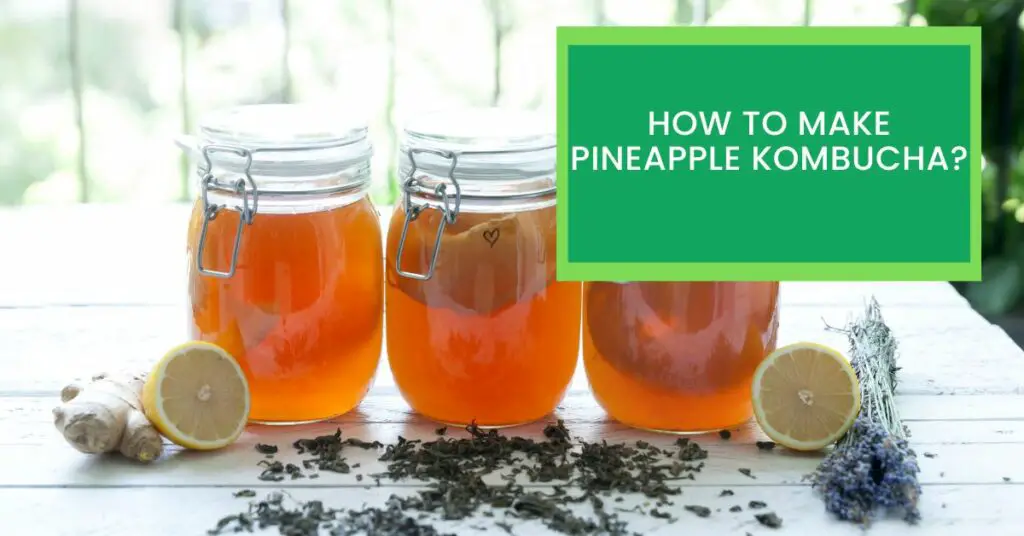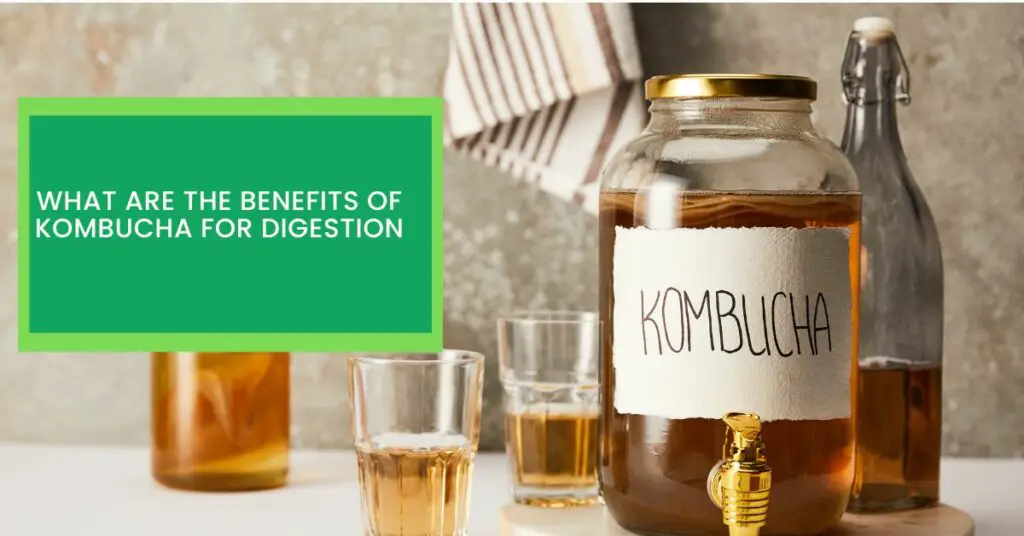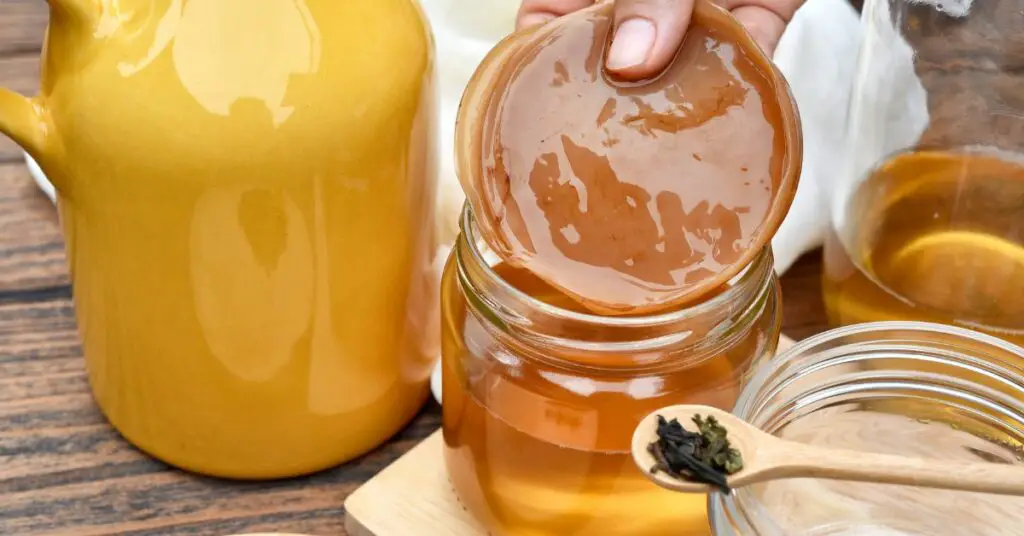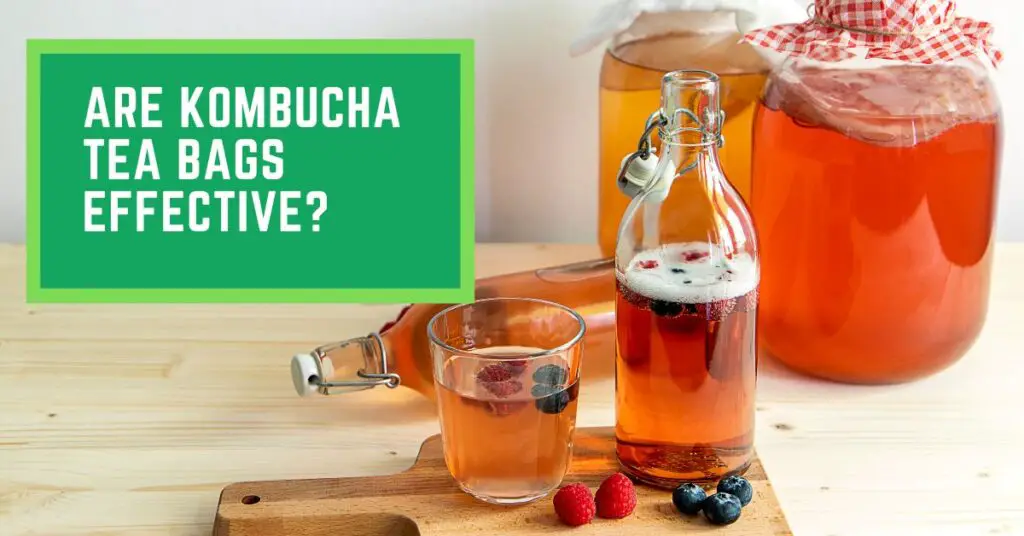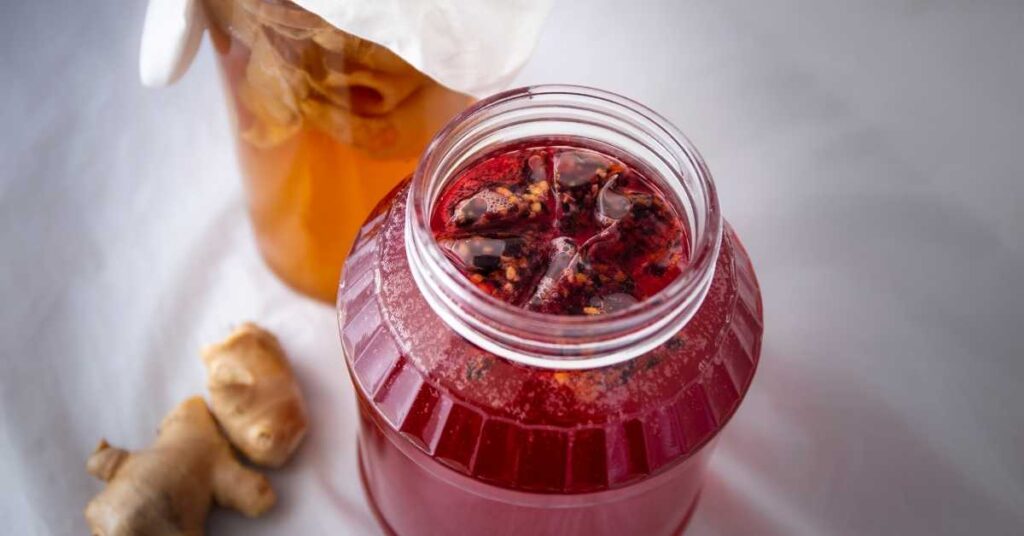Pineapple is a delicious and refreshing fruit that is also packed with nutrients like vitamin C, manganese, and fibre. Combined, these two foods make a power-packed beverage that can help improve your health in multiple ways.
Making Pineapple Kombucha is fairly easy. All you need to do is make a traditional kombucha and let it ferment for 7 days. Afterwards, add some Pineapple juice and seal for 3 to 5 days.
In this article, we will discuss everything you need to know about making Pineapple Kombucha, including the benefits, things you need to know, and the step-by-step guide.
What is Pineapple Kombucha?
Pineapple kombucha is a type of kombucha that is made with pineapple juice. It has a slightly sweet and sour taste and is filled with probiotics that can help improve gut health.
Pineapple kombucha is a great way to enjoy the benefits of kombucha without having to make it yourself. Store-bought versions are usually made with filtered water, sugar, and green or black tea. Some brands may also add fruit juice or flavouring to their kombucha, but this is not necessary.
Look for pineapple kombucha that has a short ingredient list and is certified organic to ensure that you’re getting the highest quality product possible. Avoid kombuchas that are made with artificial sweeteners, colours, or flavours.
Pineapple kombucha is a refreshing and health-promoting drink that can be enjoyed by everyone. If you’re looking for a probiotic-rich beverage that tastes great and is good for you, give pineapple kombucha a try!
How to Make Pineapple Kombucha?
Today, Pineapple kombucha is available in some stores, but it is also easy to make at home. With just a few simple supplies and a bit of patience, you can enjoy delicious, homemade Pineapple kombucha anytime!
Here’s what you’ll need to get started:
-A SCOBY
-Sweetened black or green tea
-Pineapple juice
-A clean, glass jar
-A cloth cover
-Rubber bands
Making Your Kombucha:
1. Make a batch of sweetened black or green tea. Allow the tea to cool completely before proceeding.
2. Sterile; add your SCOBY to the jar.
3. Pour the cooled tea over the SCOBY, making sure to leave a few inches of headspace at the top of the jar.
4. Cover the jar with a clean cloth and secure it with rubber bands.
5. Allow the kombucha to ferment for 7-10 days, out of direct sunlight.
6. After the fermentation period is complete, carefully remove the SCOBY and set it aside.
7. Funnel your kombucha into bottles or jars and add some Pineapple juice, seal them tightly, and store them in the refrigerator.
Enjoy your homemade Pineapple kombucha!
What Does The Pineapple Kombucha Taste Like?
Pineapple kombucha is made by adding pineapple juice to the fermentation process. This gives the kombucha a slightly fruity flavour. Some people say that pineapple kombucha tastes like a tart green apple, while others say it tastes more like a sweeter yellow apple.
Overall, pineapple kombucha is a refreshing and healthy beverage that you can enjoy anytime!
Tips to Make The Perfect Pineapple Kombucha
1. Start with a high-quality kombucha base. Kombucha is a fermented tea, and the quality of your finished product will depend heavily on the quality of the tea you use as a starting point. Look for organic, fair trade kombucha tea leaves, and make sure they’ve been processed in a clean environment.
2. Choose the right pineapple. Fresh is always best, but if you’re using canned pineapple, make sure to drain it well and use 100% pure fruit juice rather than syrup.
3. Add the pineapple at the right time. For the best flavour, add your pineapple during the second fermentation stage. This is when the kombucha is already slightly carbonated, so the pineapple will infuse nicely without overpowering the drink.
4. Use the right proportion of fruit. A good rule of thumb is to use about 1 cup of pineapple for every gallon of kombucha. This will give you a nicely balanced flavour that’s not too sweet or tart.
5. Let it ferment long enough. Kombucha is a living beverage, and the longer it ferments, the more probiotic benefits it will have. For the best flavour and health benefits, let your pineapple kombucha ferment for at least 5 days before you enjoy it.
With these tips in mind, you’ll be well on your way to making the perfect pineapple kombucha! Just remember to have fun and experiment since that’s half the fun of brewing your own kombucha at home.
How Many Calories Are in Pineapple Kombucha?
A half-bottle of pineapple kombucha only contains 4 calories, making it a great choice for those watching their calorie intake. This low-calorie content is due to the fact that kombucha is made by fermenting tea, which results in a few calories being retained in the final product.
So if you’re looking for a refreshing and healthy drink that won’t add too many calories to your daily intake, pineapple kombucha is a great option!
Frequently Asked Questions Related to Pineapple Kombucha
1. Can you ferment pineapple juice?
Fermenting pineapple juice is a great way to make a delicious and healthy drink.
When you ferment pineapple juice, the natural sugar in the fruit is turned into alcohol. This makes for a delicious and refreshing drink that is also good for your health.
Fermented drinks are high in probiotics, which are beneficial bacteria that help keep your gut healthy. They are also a good source of enzymes, which help your body digest food properly.
2. What fruits can be added to kombucha?
There are a number of fruits that can be added to kombucha, including strawberries, blueberries, raspberries, cherries, cranberries and grapes. Each fruit will impart its own unique flavour and nutrients to the drink.
For example, strawberries are a rich source of vitamin C, while blueberries are high in antioxidants. Raspberries are a good source of fibre, and cherries are a natural source of melatonin.
3. Can I use canned fruit for kombucha?
You can use fresh, frozen, or canned pineapple to make kombucha. Canned pineapple is a great option if you’re looking for something that’s already prepped and ready to go.
Just make sure that you get fruit that’s been canned in its own juice or water rather than in syrup, as the added sugar will affect the fermentation process and may not produce the desired results.

